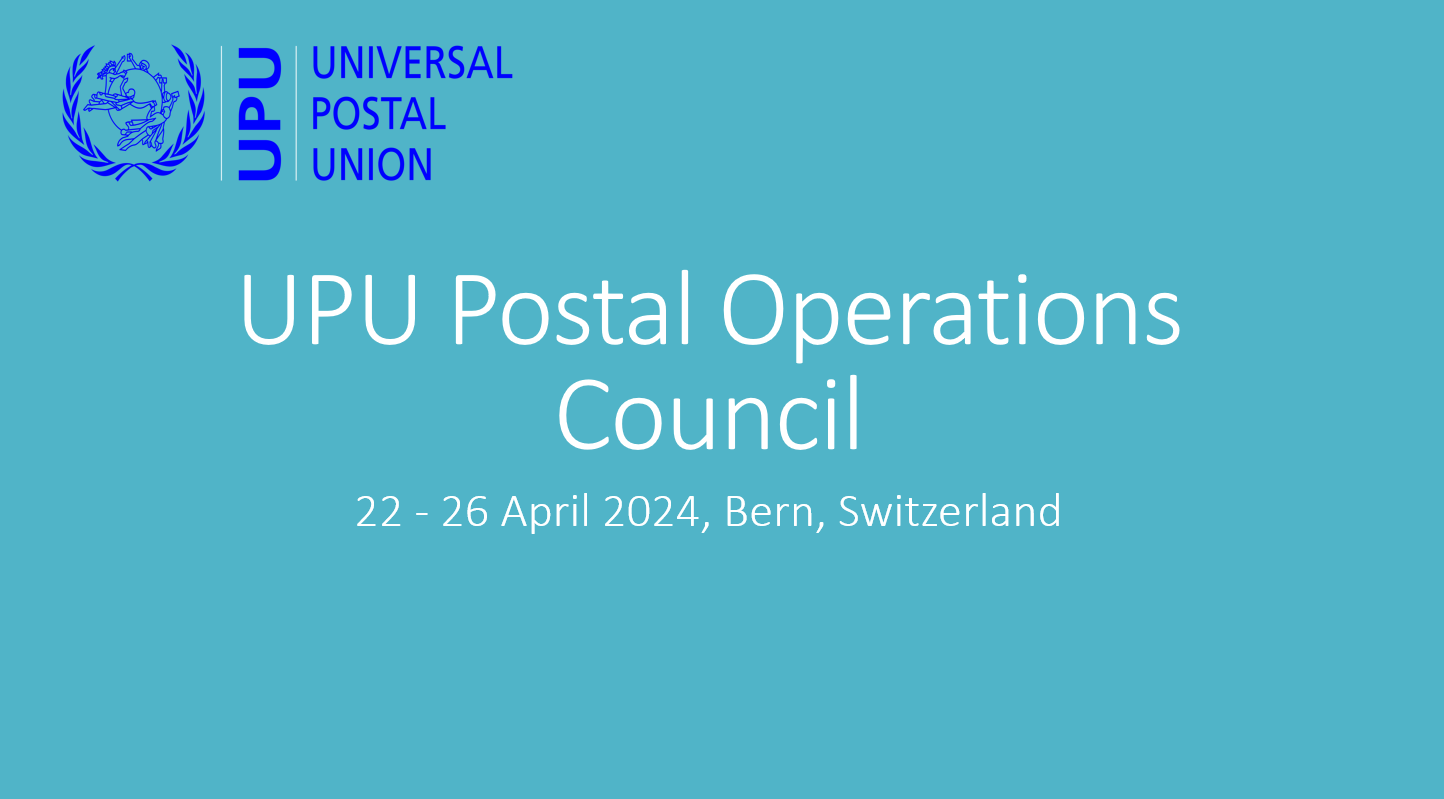
In line with the work plan of the 192-nation Universal Postal Union (UPU), the Postal Operations Council (POC) met at Union headquarters in Berne from 22 to 26 April 2024. The POC, along with the Council of Administration (CA) and the International Bureau (IB), is one of the Union's 3 governing bodies, made up of 48 countries elected by the UPU Congress.
The POC session was attended by representatives of the Communications Administrations of the Republic of Belarus and full members of the RCC Postal Operators Board - Aipost, Belpochta, Russian Post, as well as representatives of the RCC Executive Committee - in a remote format using the virtual teleconference system of the UPU International Bureau.
The POC session included meetings of the Commissions, which covered a wide range of issues related to the improvement and development of postal services worldwide.
The agenda of Commission 1 (Logistics Network) focused on improving and optimising postal services:
* Standardisation: discussion of the progress of the Standards Committee and the development of new solutions and standards in various areas (addressing, customs, mail transport).
* Technology integration: integration of addressing with geographical information systems and the introduction of electronic advance data (EAD) to speed up customs procedures and track postal items.
* Simplifying procedures: updating manuals and amending forms and regulations governing postal services.
* Improving security: reviewing postal security issues.
* Operational efficiency: analysing key performance indicators and organising the Commission's work.
The agenda of Commission 2 (Physical services and e-commerce) focused on the development and improvement of various aspects of postal services, with particular emphasis on:
* Development of physical services and e-commerce: identification of priority products, adaptation to changes following the Extraordinary Congress, unbundling of the Convention Regulations for goods and documents, planning for product integration.
* Improving service quality: assessing and improving quality measurement systems, reviewing tariffs and remuneration programmes, developing regional competence centres, creating a single resource on procedures and requirements, planning and implementing quality improvement strategies.
* Pay systems integration: optimising flows, defining minimum requirements and bonuses, planning integration.
* Regulatory compliance and operational issues: reviewing regulatory compliance and operational issues and calculations.
* Work organisation: reviewing the work programme and key performance indicators of the Commission 2.
Commission 3 (Market Development and Innovation) focused on innovation, sustainability and the promotion of philately in the postal sector:
* Digital transformation and innovation: organising hackathons and courses to improve the digital competences of postal staff.
* Sustainable postal services: capacity building in target countries, implementation of the climate delivery plan, engagement with climate policy stakeholders, promotion of the OSCAR award.
* Direct Marketing: analysing the global direct marketing market, improving DMapp system.
* Philately: developing the World Philately Development Association, creating a quality mark for stamp production, educational events, analysing financial performance.
* Work organisation: reviewing the work programme and key performance indicators of the Commission 3.
The agenda of Commission 4, "Postal financial services", focused on postal payment services (PPS) and covered the following key areas:
* Regulations and standards: adapting the legal and regulatory framework to the decisions of the Extraordinary Congress, revising the UPP Agreement, including defining the principles, scope and analysing international financial regulations.
* UPU User Group: analysing the outcome of the general meeting, including the business plan and budget, updating the user network and business development activities, updating technical projects, including the transition to UPU-IP and compliance with anti
anti-money laundering, review of the technical certification programme.
* Work organisation: analysis of the work programme and key performance indicators of the Postal Operations Council.
The Cyber Security Forum was held on the margins of the POC session on 25 April 2024. The main objective of the Forum was to create a joint platform designed to facilitate discussions, foster co-operation and increase the sector's resilience to cyber threats.
On 26 April 2024, a plenary session of the POC was held to discuss the following topics:
1. reports and activities of UPU bodies:
* Reports of the Steering Committee, Commissions (logistics network, physical services and e-commerce, market development and innovation, postal financial services), the Quality of Service Improvement Fund, the EMS Cooperative, the POST Group, the Telematics Cooperative, UPU Clearing, the Interoperability Expert Group.
2. Strategic Issues:
* POC work programme 2022-2025, update on Advisory Committee issues, operational readiness for e-commerce, update on electronic pre-data, report on the Cybersecurity Forum, Dubai Congress 2025, information on trends in international mail, future UPU strategy and action plan, UPU 150th anniversary celebrations.
3 Organisational matters:
* Dates of regular POC sessions, establishment of official relations with international partners, proposal for a reservation to the Convention Regulations, IT projects of the Postal Technology Centre, UPU publications, International Postal Corporation customer survey.
In addition, there was: the awarding of prizes to the winners of the UPU's 18th Competitive Class, the S58 and S59 certificates of compliance ceremony and the POST relaunch ceremony.
The second POC session in 2024 will take place from 28 October to 1 November 2024, with POC standing working group meetings taking place from 1 to 5 July 2024.















